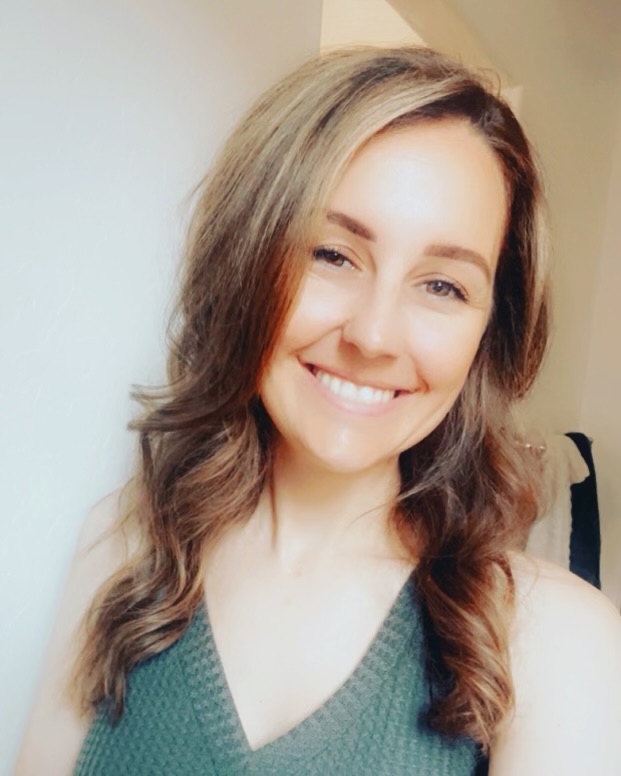From Medical Assistant to Surgical Technician: Chelsea Patterson’s Inspiring Journey in Healthcare
 Chelsea Patterson had a clear vision of what a career in nursing would look like, along with the preparation it would require. She had watched her licensed vocational nurse mom, Carol, move with surety and compassion in that demanding environment. Chelsea was ready to make the personal, financial and time sacrifices necessary to take up her own calling to contribute to the medical care and experiences of others.
Chelsea Patterson had a clear vision of what a career in nursing would look like, along with the preparation it would require. She had watched her licensed vocational nurse mom, Carol, move with surety and compassion in that demanding environment. Chelsea was ready to make the personal, financial and time sacrifices necessary to take up her own calling to contribute to the medical care and experiences of others.
She had a plan. It turned out to be a two-part education scenario because once she got comfortable as a Medical Assistant, she wanted to stretch even higher up the career ladder. Surgical Technician was her new calling. Her answer was a definite ‘Yes!’.
How much influence did your mom have in your medical career choice?
Throughout my childhood, I saw my mom enjoy her time working at the hospital and I wanted my kids to see me like I saw my mom. I had been a stay-at-home mom before I started San Joaquin Valley College’s Clinical Medical Assisting program, which I completed in 2013.
Why the Clinical Medical Assisting program at San Joaquin Valley College?
I had a couple of friends go through the program who were very excited about it. When another close friend enrolled, I enrolled right after her. We were both newbies.
I liked that it was a short program and could get my Associate of Science degree and be out and working right away.
What did you do with that first medical program education and experience?
I was offered a job right after the program, and worked for 3.5 years as a Medical Assistant in a dermatology office where we performed small surgeries. I thought it was really cool to assist with skin cancer removal and more complex procedures. I really enjoyed that part of my job. That’s where I first got the idea to become a Surgical Technician.
Why did you make the leap to SJVC’s Surgical Technology (ST) program?
I felt like I could do more with my time in the medical field. And I thought it would be exciting to assist with surgeries. We would learn how to set up for and assist in surgeries, then help people who are sick to recover.
I’d much rather be a part of surgery, and once I set out to do that, I did it!
What was the best thing about your Surgical Technology program?
Probably friends I’ve made in this program; we’ve become really close. We will all be ‘out there’ eventually, so there’s a chance we will work together or call on each other when we need to. Networking is important and we will always have each other.
We learned to work as a team. You have to be able to listen, do what your surgeon or teammates are asking you to do, communicate; it’s not an individual contributor kind of job.
What was your greatest struggle in the program?
Time away from my kids, honestly. I had been a stay-at-home mom, so the transition was sometimes difficult. My daughter (7) was 100% supportive and my son (3) was unfazed, fortunately. My husband’s life was unchanged since I was in school mornings while he was at work.
And, whatever struggles I had academically I took the opportunity to get some tutoring (on campus) or discuss with my instructor how to improve my efforts. If something is a struggle, I’m on it.
Did you get the instructor support you needed?
We had an open line of communication with our teachers throughout the program. If they know you’re struggling, they spring into action. ‘Let’s do some tutoring; when can you come in?’ They make it work for you. It’s open and available to all students.
What did you enjoy or appreciate most in your Surgical Technology program?
The hands-on part. Learning all the steps and putting them together. You start small and build. That’s your foundation, your base.
To become a Certified Surgical Technologist you have to sit for the Certified Surgical Technologist (CST) national certification exam. We did a lot of preparation for that 175-question exam. We had a lot of study materials and practice tests. I feel like I was well prepared.
What has changed since you completed your Surgical Technology program?
I’ve been a Surgical Technician at St. Agnes Outpatient Center-North for a few months and since I completed the ST program, I can now provide greater assistance in the operating room. I set up surgery rooms and assist in surgeries by passing instruments to the surgeon, holding retractors and being in a more responsive position for the surgeon.
I’ve been lucky that they’ve always treated me like I’m one of their own. This journey has been a positive outcome for me.
What advice would you give others considering the Surgical Technology program?
You can’t let other people decide your future for you. Go with your intuition no matter what situation you’re in. Whether or not it’s a good time, whether you’re married or not married or have kids – you have to do what’s right for yourself. And they will benefit, too.
Ask yourself: Where do I want to be in the future? If you’re unhappy…change it.
What inspired you to complete the Surgical Technology program?
I don’t think quitting or stopping was ever an option for me. I don’t do that in my everyday life, so why would I do that in something that’s going to be better for me and my family long-term.
What non-medical attributes are vital to a successful Surgical Technician profession?
Someone who can effectively communicate and listen openly. Someone who is a go-getter, hard worker, who is compassionate, and has empathy for others. A lot of people in this program didn’t have medical field experience, and they’re doing great because they have these qualities.
What is the vision for your future?
I may be interested down the road in training to become a Physician Assistant. It would be a big step up. PAs can diagnose patients and provide direct assistance right in the office. But, right now I’m ready to be done with school and help my husband provide a better life for our kids.
I can see myself doing this for a very long time.
You might also like
More stories about
Request Information
All fields using an asterik (*) are required.


